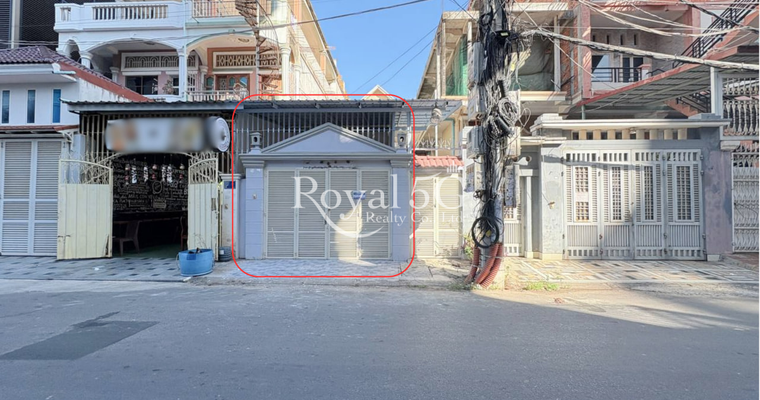
Latest properties

Condo For Sale The Orkide royal condo 2004
R5G03185
Feb 06, 2026
Phnom Penh Capital, Saensokh , Ou Baek K'am
1
1
|
Condo65,000USD

Link Villa For Rent Borey Peng Hout Boeung Snor
R5G03171
Feb 05, 2026
Phnom Penh Capital, Chbar Ampov , Nirouth
2
3
|
Link Villa1,300USD/month

Villa For Rent Borey Peng Hout 60m
R5G03168
Feb 05, 2026
Phnom Penh Capital, Mean Chey , Chak Angrae Kraom
7
8
1,568m²
|
Villa15,000USD/month

Villa for rent Sangkat Boeung Kok1 Khan Toul Kork
R5G03165
Feb 04, 2026
Phnom Penh Capital, Tuol Kouk , Boeng Kak Ti Muoy
6
6
600m²
|
Villa2,800USD/month

Building For Rent Near Aeon2 Khan Sensok
R5G03086
Jan 23, 2026
Phnom Penh Capital, Saensokh , Phnom Penh Thmei
7
7
207m²
|
Building-0.01USD or 2,500USD/month

House For Rent Sangkat Toul Tumpoung2 Khan Chamkarmon
R5G03057
Jan 20, 2026
Phnom Penh Capital, Chamkar Mon , Tuol Tumpung Ti Pir
14
14
|
House4,500USD/month

Land For Sale Sangkat Kompong Somnanh Krong Takhmau
R5G03055
Jan 20, 2026
Kandal , Ta Khmau , Kampong Samnanh
1,869m²
|
Land600,000USD

House For Rent Sangkat Toul Tumpong1 Khan Chamkarmon
R5G03040
Jan 16, 2026
Phnom Penh Capital, Chamkar Mon , Tuol Tumpung Ti Muoy
4
375m²
|
House2,500USD/month

House For Rent Sangkat Toul Tumpoung2 Khan Chamkarmon
R5G03034
Jan 16, 2026
Phnom Penh Capital, Chamkar Mon , Tuol Tumpung Ti Pir
4
4
|
House1,400USD/month

Building For Rent Sangkat Phnom Penh Tmey Khan SenSok
R5G02979
Jan 08, 2026
Phnom Penh Capital, Saensokh , Phnom Penh Thmei
22
7
270m²
|
Building3,500USD/month

Warehouse For Rent Sangkat Toul Tumpoung2 Khan Chamkarmon
R5G02940
Dec 31, 2025
Phnom Penh Capital, Chamkar Mon , Tuol Tumpung Ti Pir
2
2
419m²
|
Warehouse2,000USD/month

House For Rent Sangkat Toul Tumpoung2 Khan Chamkarmon
R5G02905
Dec 24, 2025
Phnom Penh Capital, Chamkar Mon , Tuol Tumpung Ti Pir
3
4
|
House600USD/month